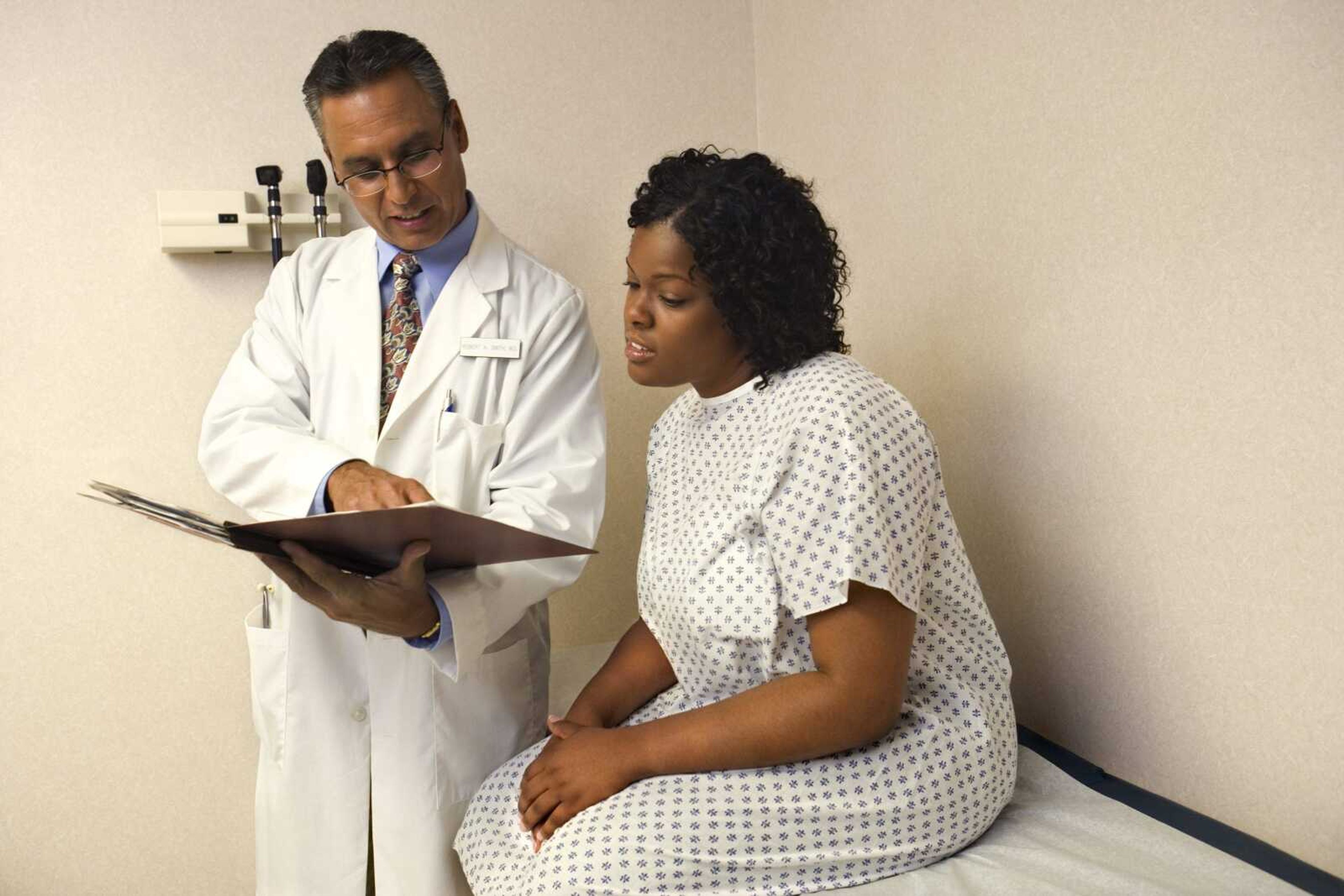Walk right in: Convenient care clinics fill the gap between primary care offices and the emergency room
What's a parent to do when their child wakes up with a sore throat on Saturday morning? Medical needs have a way of showing up when most doctors' offices are closed, but with the growing popularity of convenient or urgent care clinics, patients don't necessarily have to wait until Monday morning to call and schedule an appointment with their primary care provider -- nor do they have to rack up a hefty bill in the hospital emergency room...
What's a parent to do when their child wakes up with a sore throat on Saturday morning? Medical needs have a way of showing up when most doctors' offices are closed, but with the growing popularity of convenient or urgent care clinics, patients don't necessarily have to wait until Monday morning to call and schedule an appointment with their primary care provider -- nor do they have to rack up a hefty bill in the hospital emergency room.
"Convenient care is for when you need to be seen, when you need a same-day appointment, but you can't get into your doctor's office or your doctor's office isn't open," explains Dr. Sandra Zakroff, a family physician at Cape Primary Care of Saint Francis Medical Center.
Convenient care clinics are meant to handle acute problems such as fevers, sore throats and sprained ankles, Zakroff says, while the emergency room is for life-threatening problems such as chest pain, trouble breathing, loss of consciousness, sudden weakness on one side of the body, slurred speech or severe bleeding.
"If you think you're having a stroke or a heart attack, go to the emergency room," she says.
Dr. Jessica Cox, a primary care physician at SoutheastHEALTH, says the ideal situation is always to see your regular doctor first in nonemergency situations, because he or she already knows you and your medical history. If you can't get in there, she says, convenient care is the next best thing.

Convenient care also serves to lighten the load at emergency rooms, freeing up providers to care for patients who truly have emergencies. Because of this, Cox says there is "definitely a need" for both types of facilities.
"Primary care providers often don't have extended hours, so if you work during business hours," Cox says, urgent care provides an opportunity to "seek care without overpopulating the emergency room" with nonemergency conditions.
Zakroff agrees: "If it's Friday night, I don't want [my patients] to have to wait until Monday morning see me," she says. "Urgent care serves a real niche if my doctor's office is not open or you need an appointment today. The emergency room doesn't need to be bogged down with those types of patients."
An estimated one-third to one-half of all emergency room visits are for nonurgent care, according to the National Hospital Ambulatory Medical Survey.
"People tend to go to the emergency room because they can go 24 hours a day, seven days a week, and they can get in and be seen," Cox says.

But for patients who don't have a primary care provider, the emergency room tends to become their provider, and the costs add up quickly.
"In the emergency room, patients have to be seen regardless of their ability to pay," Cox says. "But because that's a higher level of care, it is more expensive."
The emergency room staff usually includes nurses, emergency room physicians, family physicians and internal medicine doctors, Cox says, and they're likely to have undergone additional training for emergency care. Urgent care clinics typically have a primary care provider and nurses.
Another difference between the two facilities are screening services available, Zakroff says. An urgent care clinic can provide basic lab tests and X-rays, while an emergency room has the full range of CT scans, ultrasounds, MRIs and more.
"If you go to the emergency room, they're going to do a lot more tests, and the bill is going to be more expensive," Zakroff says. "If you're having a stroke, you need to be in the emergency room. But if you have a simple bladder infection, you don't want to go to the emergency room," because you'll have a larger bill for something that could have been treated at urgent care, she explains.

Zakroff and Cox believe convenient care clinics are growing in number and popularity because they are just that: convenient.
"Part of it is society. People don't want to wait," Zakroff says. "They don't want to wait and see if their doctor has an appointment. They're sick today and they don't want to wait until tomorrow."
And in today's world, not everyone lives near family who can help when there's a problem. Instead, people tend to rely on a doctor in those situations, Zakroff says.
"Sometimes people just don't know what to do," she says. "Sometimes people come in to urgent care because they weren't sure what to do and they don't have anybody to ask. And some people don't establish with a primary care physician, especially people who are in their 20s and 30s and are healthy all the time."
And that's one more reason Zakroff urges patients to form a relationship with a primary care provider -- someone who knows your medical history, can provide some guidance in situations you're unsure of, and with whom you're more likely to land an appointment quickly when the need arises.
Saint Francis Medical Center has Immediate Convenient Care Clinics in Cape Girardeau, Jackson and Poplar Bluff, Missouri, as well as Doctors Express on South Mount Auburn Road in Cape Girardeau. Each location is open seven days a week with extended hours.
SoutheastHEALTH operates Southeast Convenient Care at 2432 E. Main St. in Jackson, open 7 a.m. to 7 p.m. every day.
WHEN TO GO TO CONVENIENT CARE ...
* Sprains and strains
* Minor headaches
* Nausea, vomiting, diarrhea
* Bumps, cuts and scrapes
* Earache
* Flu-like symptoms
* Coughs, colds and sore throats
* Pink eye
* Urinary tract infections
* Flu shots
* Physicals for sports or school
* Allergies or mild asthma attacks
* Animal or insect bites
* Broken bones (if they haven't punctured the skin)
* Joint pain
* Lower back pain
* Minor burns
* Rash or skin irritations
WHEN TO GO TO THE EMERGENCY ROOM
* Chest pain
* Signs of a stroke (numbness on one side of the body, difficulty speaking, sudden loss of vision)
* Difficulty breathing
* Severe bleeding
* Head trauma
* Loss of consciousness
* High fever
* Possible broken bones (including ones that have punctured the skin)
* Coughing or vomiting blood
* Major burns
* Overdose
* Severe abdominal pain
* Severe or persistent vomiting or diarrhea
* Spinal injuries
* Sudden dizziness, weakness or changes in vision
(Information provided by SoutheastHEALTH and Saint Francis Medical Center)
Connect with the Southeast Missourian Newsroom:
For corrections to this story or other insights for the editor, click here. To submit a letter to the editor, click here. To learn about the Southeast Missourian’s AI Policy, click here.









